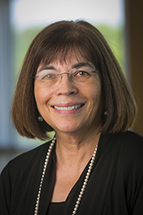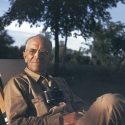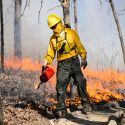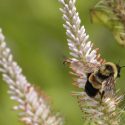Arboretum review seeks to strengthen iconic research program
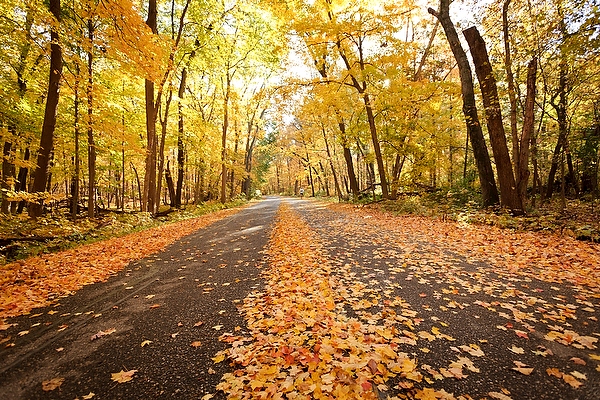
Fallen leaves cover Arboretum Drive in Gallistel Woods at the Arboretum during autumn 2012. Photo: Jeff Miller
The University of Wisconsin Arboretum’s position as a world leader in ecological research will be strengthened as recommendations of a review committee are implemented, according to UW–Madison leaders.
The review committee, comprising seven faculty and staff members from across the UW–Madison campus, this past year engaged in a thorough study of the historic 1,200 acre research and education center, which was dedicated in 1934 and has served as a laboratory for generations of field ecologists, including in its earliest days the iconic conservationist Aldo Leopold.
Its final report recommended the formation of a new research committee, representing departments and programs from across campus, to broaden affiliations with UW–Madison faculty and build a larger community of scholars with overlapping interests in ecosystem research and restoration.
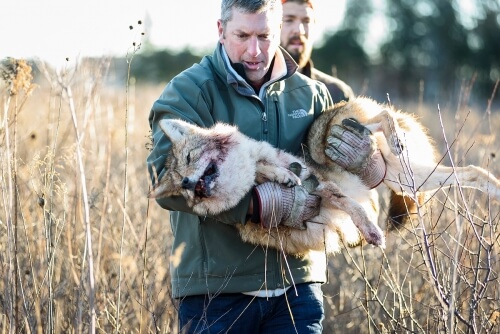
David Drake carries a sedated coyote caught in the Arboretum as part of a research effort to study the behavior of growing fox and coyote populations in the city of Madison. Photo: Jeff Miller
“This is a watershed moment in the history of the Arboretum,” says David Drake, a UW–Madison professor of wildlife and forest ecology and chair of the Arboretum Committee. “The UW Arboretum is a resource of international stature in the context of restoration ecology and it’s essential that we preserve and strengthen its program of research for the current as well as future generations of researchers.”
Drake says the recommendations embodied in the report will help focus resources in a time of constrained budgets, make the Arboretum more seamless to researchers across campus, and position UW–Madison to attract a director who can both manage a robust research portfolio and a complex facility with many passionate constituencies.
“This is a watershed moment in the history of the Arboretum.”
David Drake
The review committee also discussed experimentation with new kinds of public access and participation, possibly including private events and eco-friendly wedding ceremonies. The Arboretum receives an estimated 1 million visitors each year, many of whom explore its miles of trails through restored prairies and forests, tour its gardens, or participate in a spectrum of education and outreach programs. The committee cited the potential to build on that popularity to create more public use and provide support for new programs.
The committee also discussed the value of keeping the Arboretum under the UW–Madison Office of the Vice Chancellor for Research and Graduate Education and for building closer ties to campus units with related interests, such as the Department of Botany, the Department of Environmental Engineering and the Nelson Institute for Environmental Studies.
The report, says Drake, signals the beginning of a search for an internationally known leader in ecological research and program administration to serve as the Arboretum’s new director.
“We’re very pleased with the committee’s thorough review, which was overwhelmingly positive,” says UW–Madison Vice Chancellor for Research and Graduate Education Marsha Mailick. “It reaffirms the critical importance of the Arboretum’s mission in research, education and outreach, and we look forward to upholding and strengthening its original intent and the Leopold legacy.”
Efforts to revitalize and build cross-campus collaboration in Arboretum research are already underway, and the search for a permanent director will begin soon.

